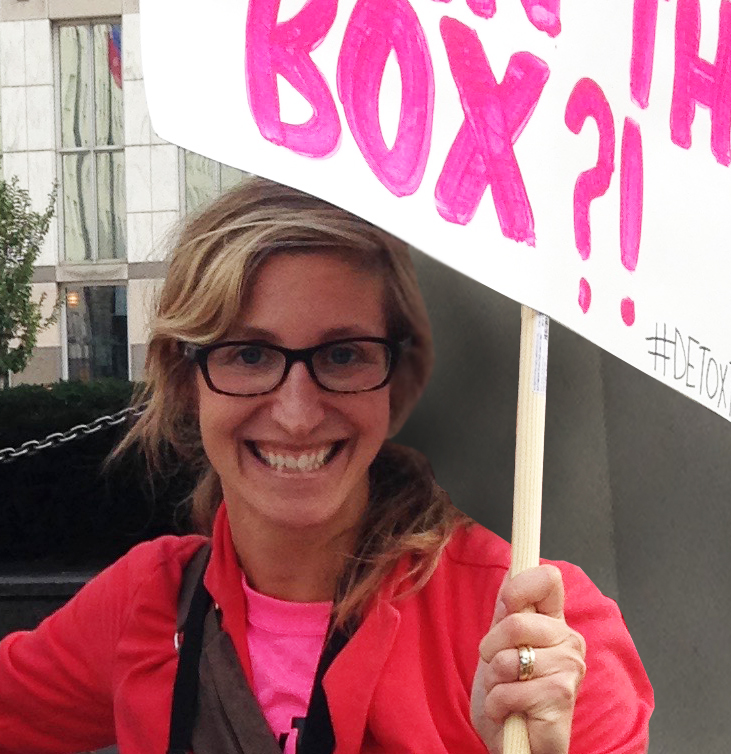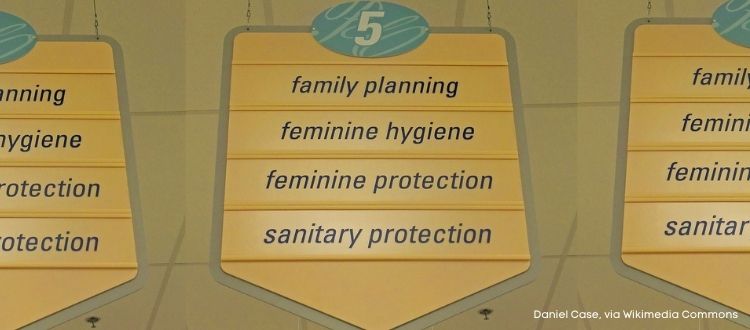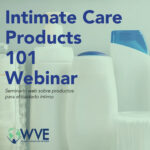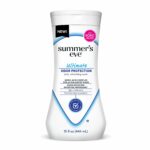We Need to Talk About the Term ‘Feminine Hygiene’
 |
|
Beth Conway |
HAPPY International Pronoun Day — a movement that seeks to make respecting, sharing, and educating about personal pronouns commonplace, and to create and celebrate inclusive environments!
Sharing personal pronouns is a great way to break through isolating language and invites people to be their authentic self. It is respectful, thoughtful and honors the experiences of transgender and gender nonconforming people that are far too often ignored or neglected. Which is why on International Pronoun Day I could think of no better time to uplift the conversation about the term “feminine” when talking about period care products (like tampons, pads, cups and menstrual underwear) and intimate care products (like washes, wipes, douches, sprays and powders).
For much too long the language to describe and talk about period products has been exclusively feminized and limited to cisgender* women. This is a problem; it excludes people’s experiences by inferring that the only people who have periods are women and girls, disregarding the fact trans men and non-binary people use these products too. This can be incredibly dangerous because it means not all the voices of people who menstruate are being included in important decisions and conversations about their health.
In addition, trans women and many cis women don’t get periods — using language like “feminine care” infers that you must menstruate in order to, in fact, be feminine or to be considered a woman. In short, this language is a whole lot of alienating to a whole lot of people.
And while we’re at it — let’s talk about the words “hygiene” and “sanitary”. Language like “feminine hygiene” and “sanitary products” construes the ridiculous notion that periods are somehow unhygienic and unsanitary. Which is why we’re loving the campaign — #RenameDontShame — recently launched by our friends at Natracare, which calls on retailers in the UK and United States to “commit to tackling the stigma around periods by changing their product signposting, on store shelves and online, from ‘feminine hygiene’ or ‘sanitary products’, to ‘period products’ or ‘menstrual products’.”
Avoiding terms like ‘period’ and ‘menstruation’, as though they are shameful words, upholds the very real stigma around this natural bodily function. This stigma affects people’s quality of life, every day… Language is powerful, and supermarkets have the power to either alienate and shame people with their language or include them and normalise their experiences.
Boom. Mic drop.
Retailers and supermarkets are, in fact, lagging on this issue. Many companies that make tampons, pads, cups and period underwear are already making significant changes in the way they talk about these products. For example, Seventh Generation made the switch from “Feminine Care” to “Period Care” over a year ago. Companies like Aisle make “period products for every body”. Even Procter & Gamble — the world’s largest manufacturer of menstrual products and a company who WVE doesn’t always (pun intended) see eye-to-eye with — announced they are removing the Venus female symbol from the packaging of their Tampax and Always products (however, they still categorize and market their period care products as “feminine care” on their website).
WVE has work to do too. Many of our older materials on period and intimate care products also contain “feminine” language — over the last few years we too have worked hard to address how we talk about these products and the people that use them, and recognize that we still have work to do internally and externally to ensure we are not pushing people out of this conversation.
All these shifts matter, because words matter and influence actions. So let’s act by learning, growing and getting to work from a place of love, inclusion and openness. Here are a few places to start :).
- JOIN WVE in supporting Natracare’s campaign to fight back against harmful language in their #RenameDontShame campaign! CLICK HERE to sign the petition.
- Write to your local supermarkets about the changes you’d like to see in how they identify period care products and why.
- Read this interview with transgender model and activist Kenny Ethan Jones on the safety concerns trans and gender-nonconforming people face during menstruation.
- Learn more: MyPronouns.org has a number of great resources to answer questions around sharing pronouns and why they matter.
- Share these resources from MyPronouns.org with your co-workers and HR to start a conversation about sharing pronouns at work.
- Add your personal pronouns to your personal and/or professional email signature and/or business cards.
- Join us to talk about period health at Our Stories, Our Flow: A Conversation about Menstruation workshop.
*Cisgender refers to people whose gender identity and expression matches the biological sex they were assigned when they were born. For example, someone who identifies as a woman and was assigned female at birth is a cisgender woman.






